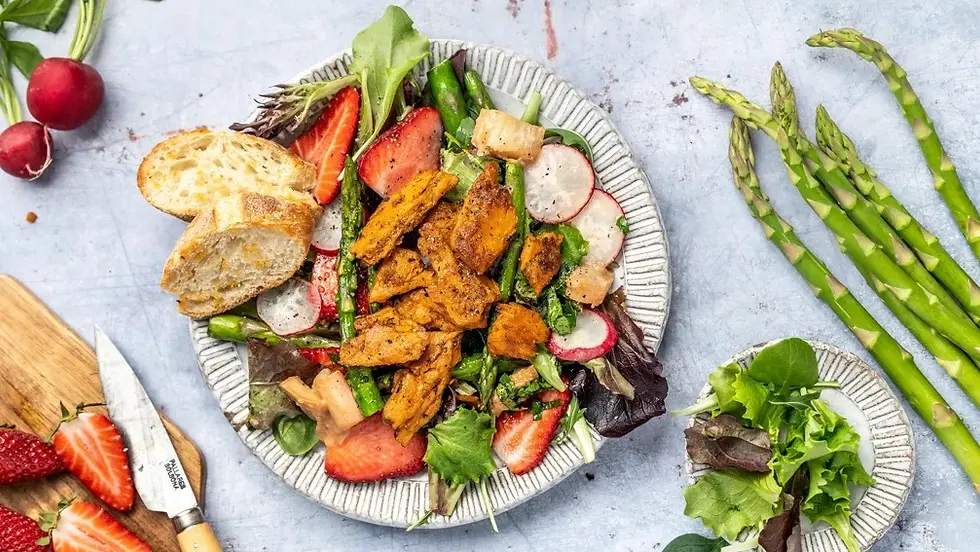Related posts
European food-tech start-ups Revo Foods and Paleo have announced a new partnership, backed by €2.2m in EU funding, to develop plant-based salmon alternatives containing precision-fermented myoglobin.
Myoglobin is a heme protein originally found in animal muscle tissue. Essential to the taste, texture and nutritional value of meat products, the traditionally animal-derived protein can now be produced through an animal-free fermentation process – an area Belgian food-tech Paleo specialises in.
These proteins can then be integrated into plant-based meat alternatives to give them an authentic taste, colour, aroma and iron-rich nutritional profile.
🩸 Read this 'Start-up spotlight' interview with Paleo on FoodBev Media's The Plant Base platform to learn more about its innovation in myoglobin development 🩸

Revo Foods, based in Vienna, Austria, produces vegan seafood alternatives using its proprietary 3D structuring technology. Its first 3D-printed product to hit supermarket shelves, ‘The Filet,’ is a mycoprotein-based salmon alternative, and is now available at Rewe and Spar stores in Austria.
The new partnership will see Paleo develop a myoglobin ingredient designed to mimic salmon, and integrate it into the recipe for Revo’s ‘The Filet’.
Using 3D structuring technology, multiple materials can be integrated into each other, such as fats into a protein component. This is demonstrated by the authentic salmon-like white stripes featured in Revo’s product. The company recently opened what it claims is the world's largest production facility for 3D food printing in Vienna.
Paleo and Revo aim to develop sustainable and high-quality alternatives that will be even more similar to conventional salmon than Revo’s current product. With the help of Paleo’s myoglobin, the salmon will taste more authentic and offer improved nutritional value, particularly with regards to iron and protein content.

Revo’s technology enables efficient integration of myoglobin into food products. Using myoglobin from precision fermentation can also further reduce the ecological footprint of the product, contributing to environmental protection. According to Revo, the environmental benefit of its existing alternatives is already significant – up to 90% of fresh water and 75% of CO2 can be saved compared to conventional fish, the company said.
The project began in August 2024 and will run for two years. It is supported by funding from Eureka Eurostars, an international EU funding programme for small and medium-size enterprises that want to collaborate on R&D projects to develop innovative products, processes or services.
#RevoFoods #Austria #Belgium


Melissa Bradshaw
1 November 2024







_gif.gif)